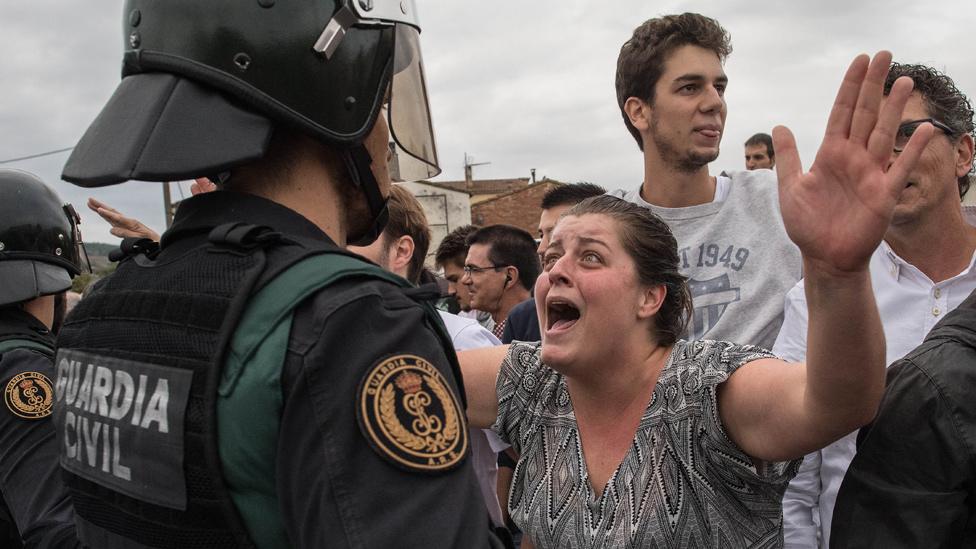Puigdemont: EU parliament lifts ex-Catalan leader's immunity
- Published
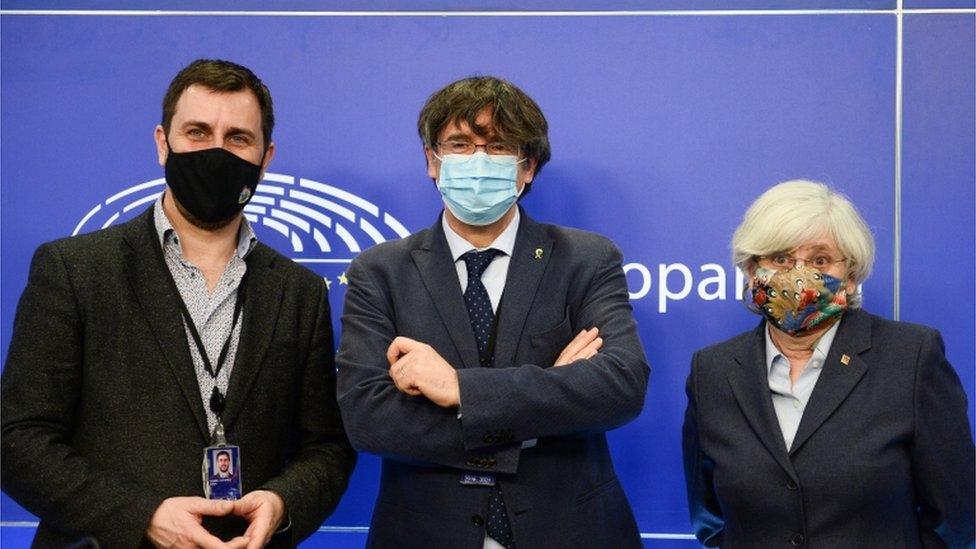
Former Catalan President Carles Puigdemont (C), Toni Comín (L) and Clara Ponsatí left Spain after the 2017 referendum
The European Parliament has voted to waive the immunity of former Catalan leader Carles Puigdemont and two other Catalan separatist MEPs.
The politicians left Spain in 2017 following a failed independence referendum, which Madrid said was illegal.
The vote left the country facing its deepest political crisis in decades.
The decision could help Spain's bid to extradite the separatists, who have been charged with sedition.
All three reject the charges against them, which Mr Puigdemont described as "a clear case of political persecution".
In 2019, Spain sentenced nine other Catalan leaders to between nine and 13 years in prison over their role in the independence vote.
On Monday, European lawmakers overwhelmingly agreed to strip immunity from Mr Puigdemont, with 400 votes to 248, with similar numbers backing the decision against Toni Comín and Clara Ponsatí.
Spain's Foreign Minister Arancha González Laya said the decision showed that "Catalonia's problems are to be resolved in Spain and not in Europe".
However, Mr Puigdemont described the move as "a sad day for the European Parliament" and announced that all three planned to launch an appeal with the EU's top court, the European Court of Justice.
"We have lost our immunity but the European Parliament has lost even more than that, as a result it has also lost European democracy," he said.
Who are the three politicians?
Former Catalan President Puigdemont and his two ex-ministers are wanted in Spain on charges of rebellion. Mr Puigdemont and Mr Comín are also accused of misusing public funds.
Both Mr Puigdemont and Mr Comín have been in self-imposed exile in Belgium since the 2017 referendum and became members of the European Parliament in June 2019.
Catalonia's ex-president on life 'on the run'
Ms Ponsatí, a former education minister in Catalonia, initially fled to Scotland but is now in Belgium. She has been an MEP since January 2020.
The decision means that Belgium will be able to consider Madrid's attempts to extradite the three politicians.
Last month, however, a Belgian court rejected the Spanish government's bid to extradite another former Catalan cabinet member, Lluís Puig, who is wanted for misuse of public funds.
What happened in 2017?
Around 90% of Catalan voters backed independence in the referendum on 1 October 2017, but the turnout was only 43%. There were clashes when Spanish national police tried to prevent people voting.
The ruling separatists in the Catalan parliament declared independence on 27 October, before Madrid suspended the region's autonomy.
The Spanish government sacked the Catalan leaders, dissolved parliament and called a snap regional election two months later. Separatist parties won a narrow majority.
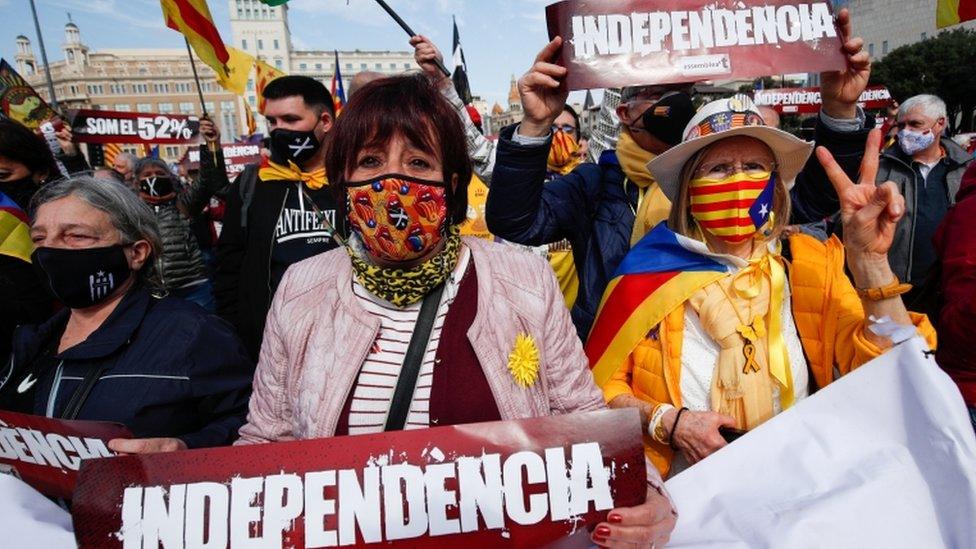
Pro-independence parties are still popular in Catalonia
Separatist parties remain popular in Catalonia, gaining four additional seats in local elections last month.
The recent jailing of a rapper from the region over tweets and lyrics that attacked the monarchy and police also sparked anger, with many protesters calling for the release of Catalonian independence leaders.
What is Catalonia?
Catalonia is a semi-autonomous region in north-eastern Spain with a distinct history dating back almost 1,000 years.
The wealthy region has a population of about 7.5 million, with their own language, parliament, flag and anthem.
Catalonia also has its own police force and controls some of its public services.
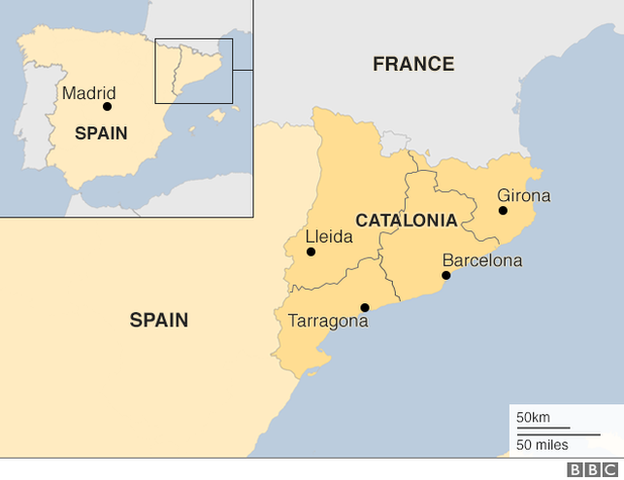
- Published5 November 2019
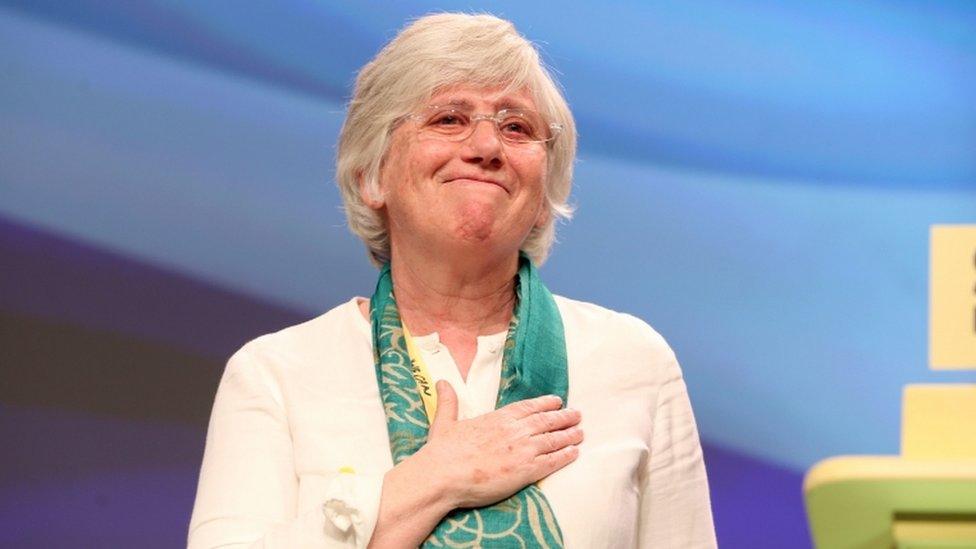
- Published5 November 2019
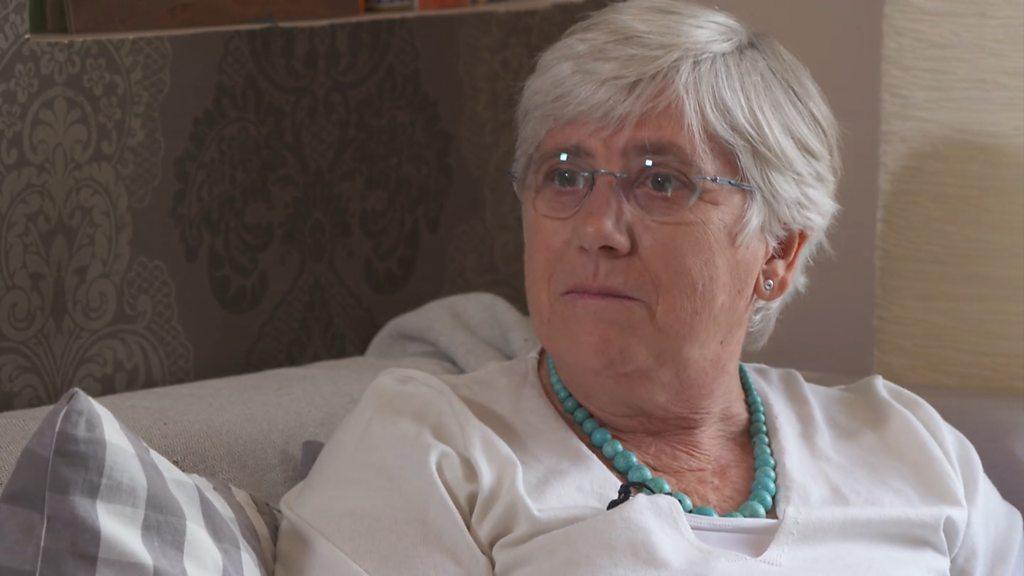
- Published26 March 2018
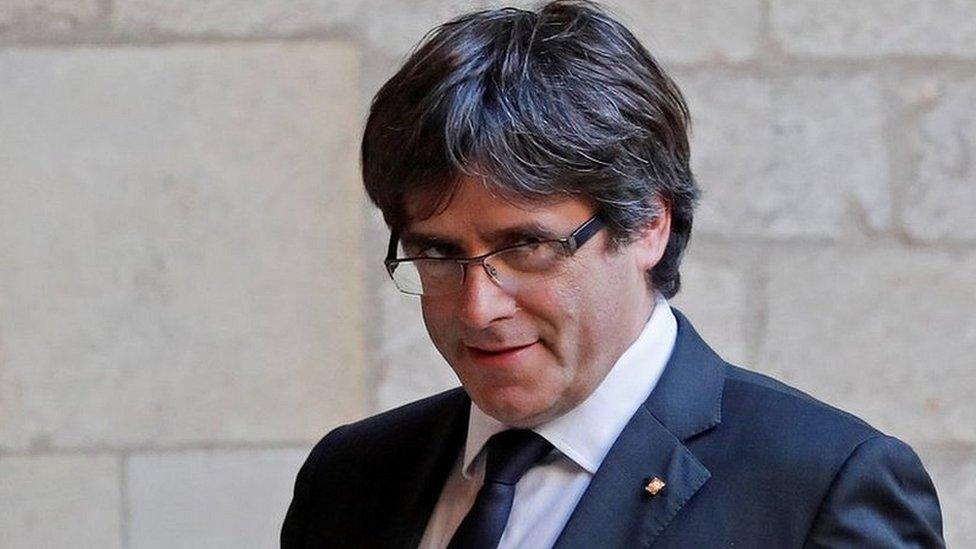
- Published5 October 2017
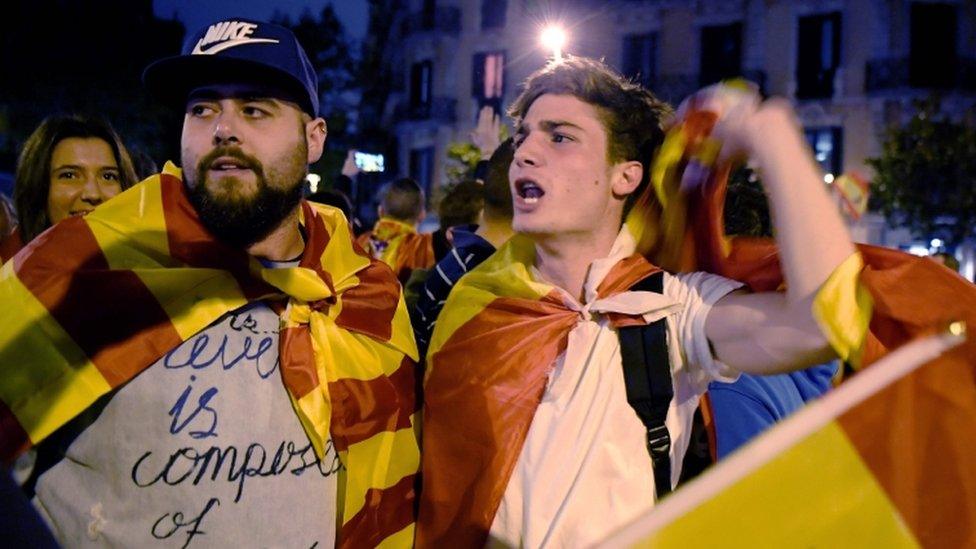
- Published5 October 2017
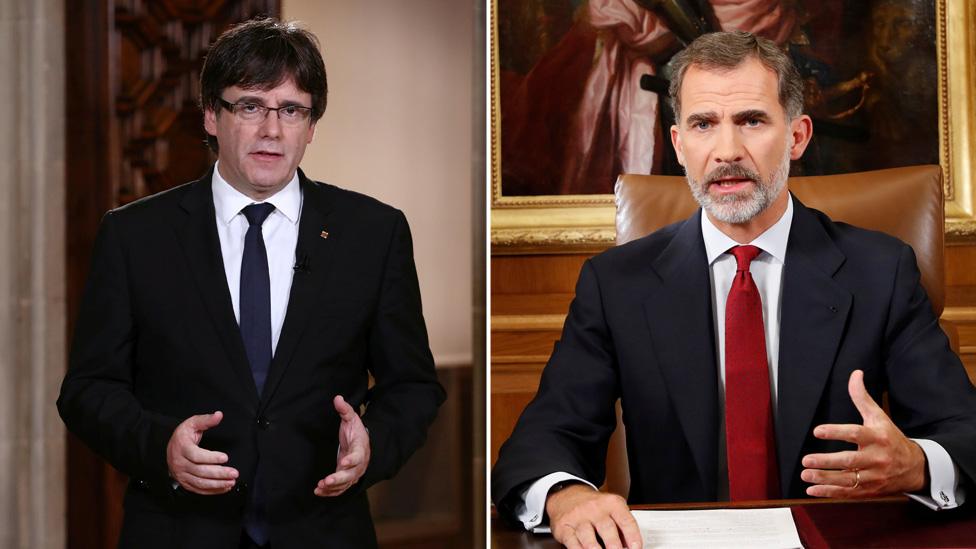
- Published4 October 2017
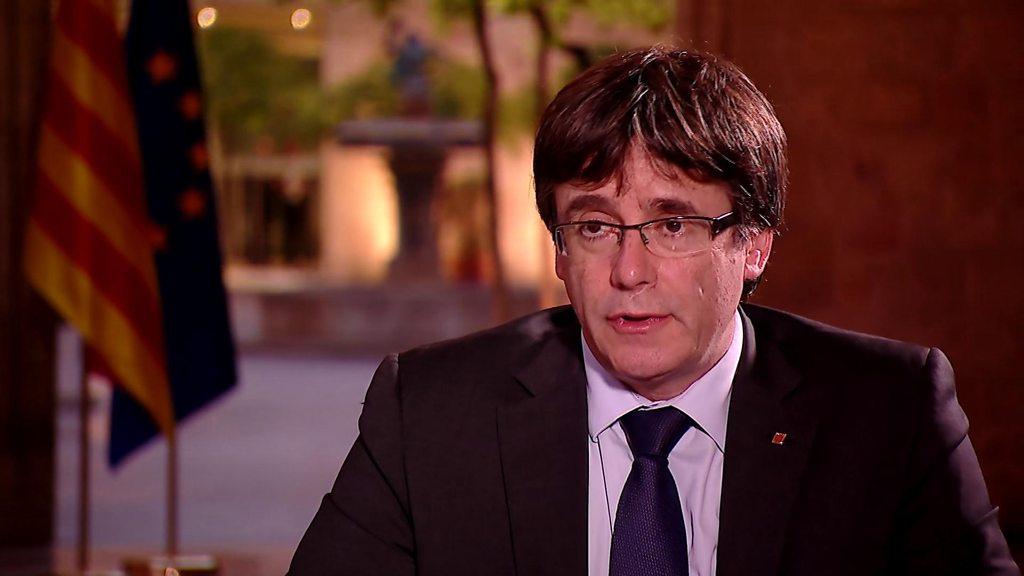
- Published22 December 2017
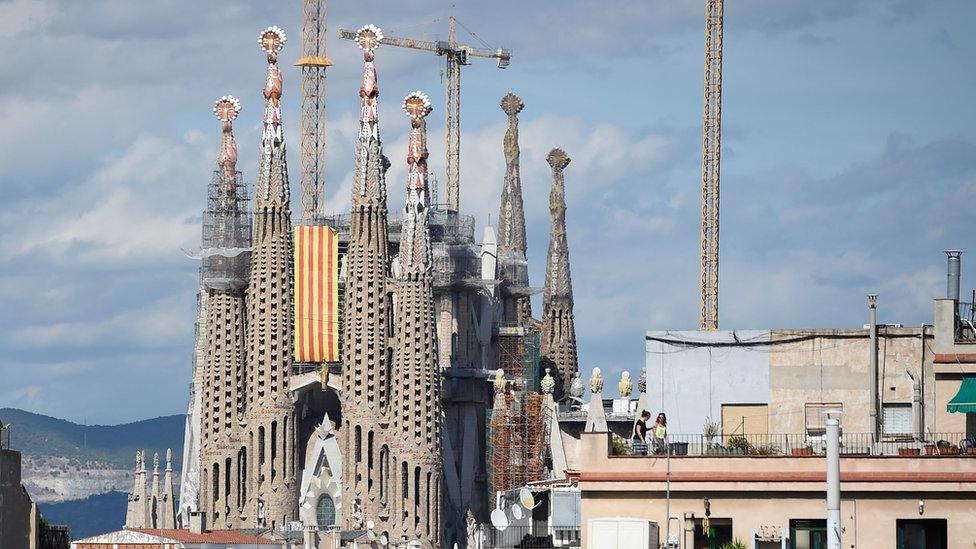
- Published3 October 2017
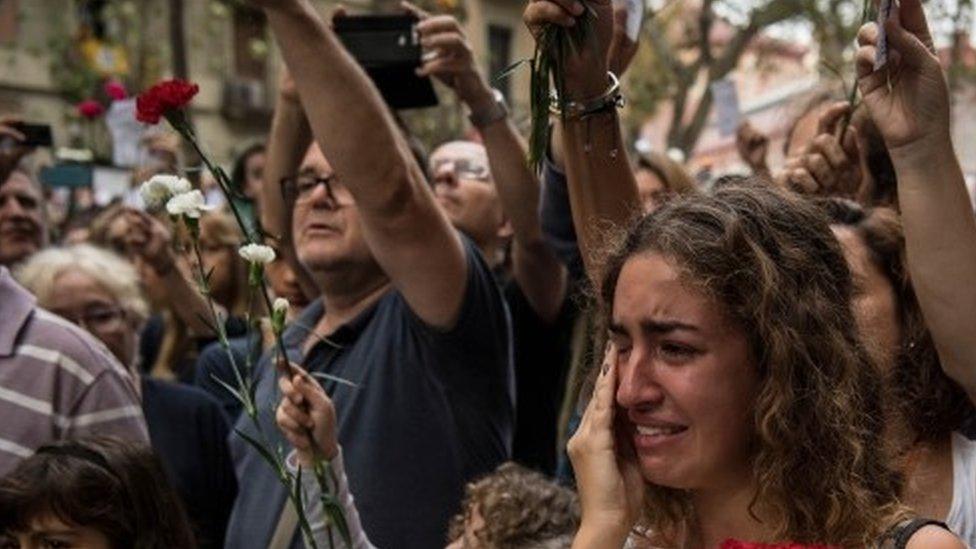
- Published3 October 2017
